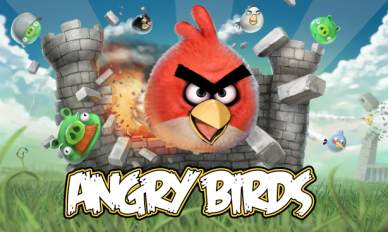The vigor with which the RIAA chases after those accused of pirating music has made the organization one the most reviled on the planet.
At one point, the RIAA was even suing the deceased and people who didn’t own computers. Personally, I like to think one of the reasons RIAA so rabidly attacked alleged “pirates” was due to the backlash the Association faced by music fans and consumers in general.

Of course, the music and movie industries are not alone in terms of staring down rampant piracy, as the video game world also faces the same phenomenon. And when it comes to mobile video games, Rovio has one of the most popular titles ever coded with Angry Birds.
Although the company is obviously against the concept of piracy, Rovio has adopted a completely different approach than the RIAA. To be sure, Rovio CEO Mikael Hed believes pursuing pirates in courts is futile, except in rare cases where illicit products being sold are harmful to the Angry Birds brand or ripping fans off.
“We have some issues with piracy, not only in apps, but also especially in the consumer products. There is tons and tons of merchandise out there, especially in Asia, which is not officially licensed products,” Hed told The Guardian.
”We could learn a lot from the music industry, and the rather terrible ways the music industry has tried to combat piracy.”
According to Hed, piracy is not always a bad thing; he feels the widespread practice can also bring more business. That makes a lot of sense, because if someone’s in a store and sees unlicensed products from the game, well, they may be tempted to go and actually buy the real game or legitimate merch.
As Hed explains, “Piracy may not be a bad thing: it can get us more business at the end of the day.”
The last thing Rovio wants to do is alienate legitimate players, which is what the RIAA did. In fact, Rovio says it doesn’t consider Angry Bird players to be users, but rather fans of the wildly popular franchise.
“We do that today: we talk about how many fans we have,” he added.
It’s certainly very refreshing to see a company that seems to have enough sense to recognize the way to stop piracy is not to alienate the very people who are fans of your game. Here’s to hoping other gaming firms, music studios, and Hollywood learn a little something from Rovio.






